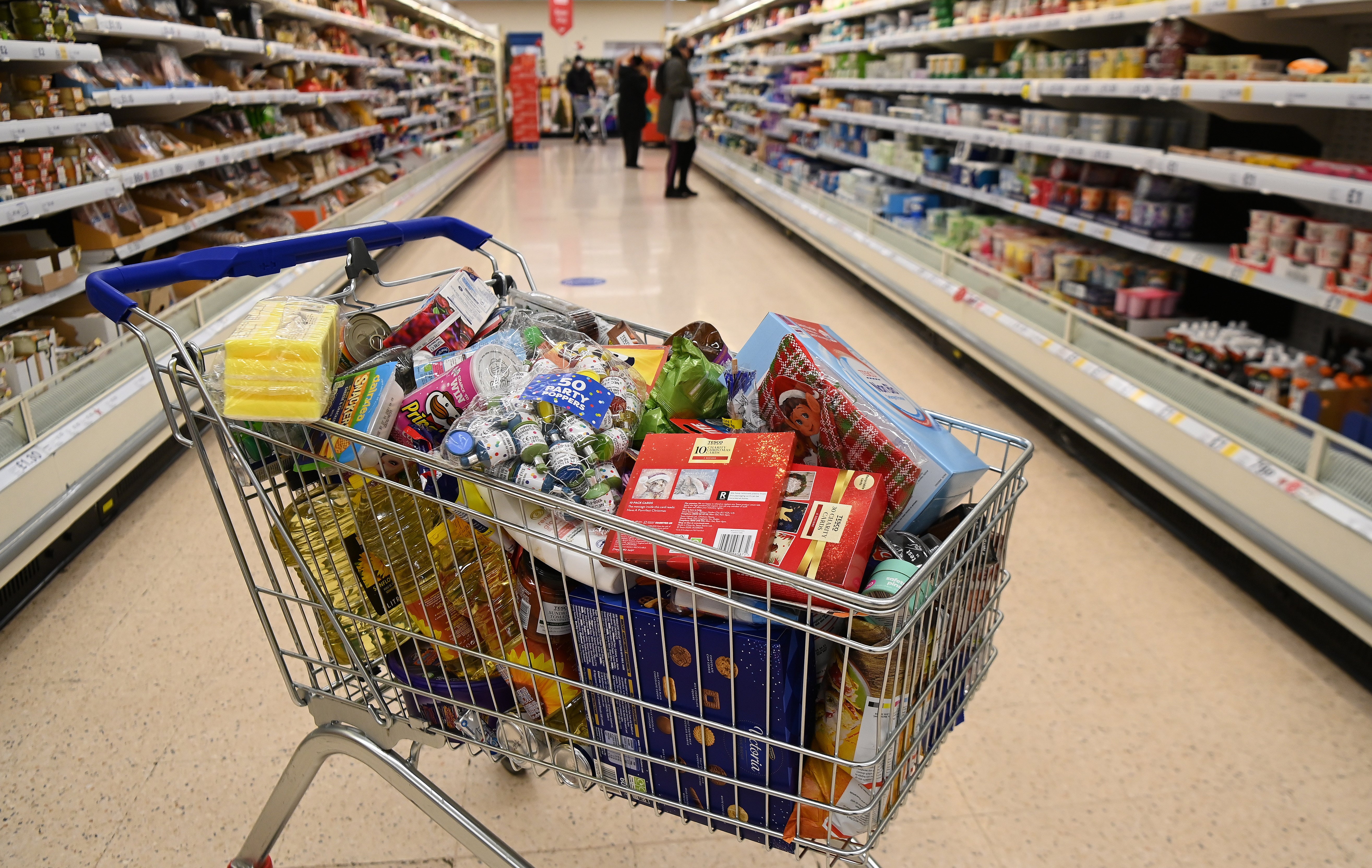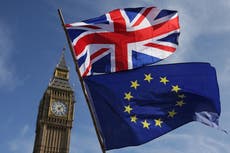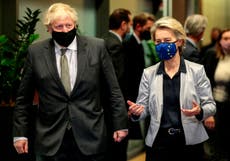Public urged not to panic-buy as threat of no-deal Brexit looms
Supermarkets began stockpiling food and other goods this weekend in preparation

Your support helps us to tell the story
From reproductive rights to climate change to Big Tech, The Independent is on the ground when the story is developing. Whether it's investigating the financials of Elon Musk's pro-Trump PAC or producing our latest documentary, 'The A Word', which shines a light on the American women fighting for reproductive rights, we know how important it is to parse out the facts from the messaging.
At such a critical moment in US history, we need reporters on the ground. Your donation allows us to keep sending journalists to speak to both sides of the story.
The Independent is trusted by Americans across the entire political spectrum. And unlike many other quality news outlets, we choose not to lock Americans out of our reporting and analysis with paywalls. We believe quality journalism should be available to everyone, paid for by those who can afford it.
Your support makes all the difference.Retailers have urged the British public not to stockpile food or toilet roll in the event of a no-deal Brexit as time runs out for the UK and the EU to reach a trade agreement.
The British Retail Consortium (BRC) said shops were stockpiling items to ensure “sufficient supply of essential products" amid the uncertainty, but asked customers not to buy more than normal.
The UK and EU agreed to extend the deadline for reaching a post-Brexit trade agreement on Sunday after failing to agree terms.
The ongoing uncertainty is causing difficulties for stores to prepare for 1 January, when without a deal, the public will face more than £3 billion in food tariffs and higher prices throughout 2021.
“New checks and red tape that will apply from January 1 will create an additional burden for retailers and their customers”, said BRC chief executive Helen Dickinson.
“Retailers are doing everything they can to prepare for all eventualities- increasing the stock of tins, toilet rolls and other longer life products so there will be sufficient supply of essential products.
“While no amount of preparation by retailers can entirely prevent disruption there is no need for the public to buy more food than usual as the main impact will be on imported fresh produce, such as fresh fruit and vegetables, which cannot be stored for long periods by either retailers or consumers.”
Ministers have urged medical suppliers to amass six weeks of stock at secure locations across the UK, while supermarkets have been told to begin stockpiling food and other goods this weekend.
Food producers have also been warned that there may be shortages of vegetables in the first quarter of 2021 and emergency planners predict that no-deal would spark wide-spread panic-buying.
“I think it's very difficult to be ready because there are a number of areas where we don't have any detail at all,” Ms Dickinson said.
“We're not going to know what tariffs are going to be imposed on any goods leaving or coming into the country, meaning we won't know the price.”
She cautioned that it is the public that will “pay the price” for a failure to “agree a zero-tariff agreement”.
“With many people's finances already strained by the economic impact of coronavirus, households can ill-afford a significant rise in food prices. For the sake of customers and businesses around the UK, we need a deal in the next three weeks,” she added.
However, supermarkets are believed to be better placed to deal any panic-buying following the coronavirus pandemic.
During the UK’s first lockdown, many chains introduced limits on goods such as toilet roll, dried pasta and UHT milk to quell frenzied consumers.
In a joint statement, British prime minister Boris Johnson and European Commission president Ursula von der Leyen said they are committed to continuing talks and that it’s “responsible at this point to go the extra mile”.
But Mr Johnson admitted the negotiating teams were “still very far part on some key things”, and said the “most likely” conclusion is a no-deal Brexit.





Join our commenting forum
Join thought-provoking conversations, follow other Independent readers and see their replies
Comments